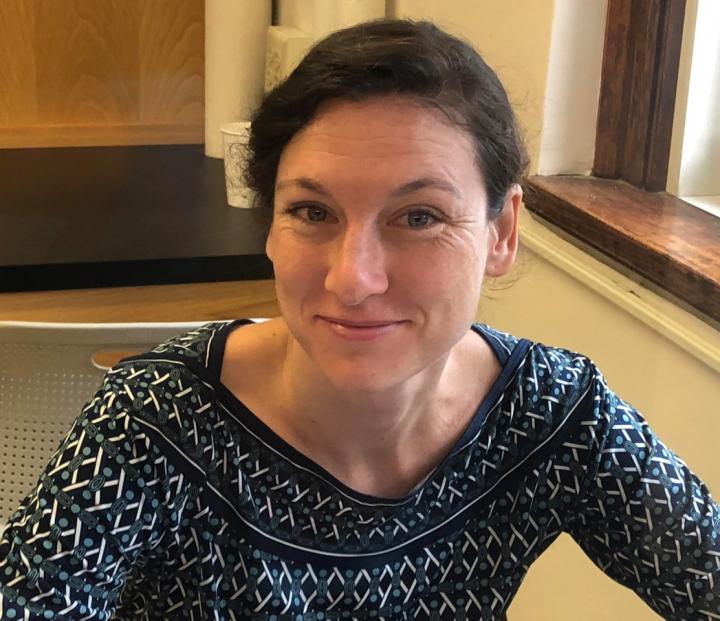Award includes four years of funding to explore biomedicine’s most challenging questions

Credit: UMass Amherst
University of Massachusetts Amherst biologist Lillian Fritz-Laylin is one of 22 early-career researchers selected for the Pew Scholars Program in the Biomedical Sciences, the Pew Charitable Trusts announced Friday, June 14.
The scientists will use their awards to conduct biomedical research aimed at advancing human health. Fritz-Laylin will receive four years of funding, or a total of $300,000.
“It is a great honor to be selected for this award,” Fritz-Laylin says, “and I am delighted that the innovative work of my lab team is being recognized in this way.”
The 2019 class of Pew scholars, all of whom hold assistant professor positions, was chosen from 178 applicants who were nominated by leading academic institutions and researchers across the United States.
“Fritz-Laylin’s dedication to investigating complex mechanisms of biology provides the kind of fundamental knowledge we need to enable future biomedical applications,” says Tricia Serio, dean of the UMass Amherst College of Natural Sciences. “Her work is an example of the research excellence we strive for.”
Ben Normark, chair of biology, adds, “Lil Fritz-Laylin’s research is truly fundamental. She’s an innovator in both cell biology and evolutionary biology. We’re delighted that the Pew Charitable Trusts understands the biomedical value of this work and recognizes Lil as an emerging leader.”
The newly named scholars become part of an active community of nearly 1,000 scientists who have received Pew awards since 1985. Current scholars come together annually to share their research and gain insights from peers working in other fields.
“Pew’s continued investment in scientific discovery allows promising researchers to explore new and creative ways to answer some of the most pressing questions surrounding human health and disease,” says Craig C. Mello, Distinguished Professor of molecular medicine at the University of Massachusetts Medical School in Worcester, a 1995 Pew scholar, 2006 Nobel laureate in physiology or medicine and chair of the national advisory committee for the scholars program.
Fritz-Laylin studies the complex molecular events involved in the movement of cells, which are central to disease prevention and progression. Specifically, she will use her Pew award to explore how cells can repurpose the actin protein network to perform different tasks. She explains that actin is a protein that can form long chains called polymers. Unlike those of DNA, the connections actin forms are not very stable; cells can control the formation and disassembly of actin polymers very quickly.
“Cells use actin polymers to make temporary structures for many purposes, including moving stuff around and bringing stuff inside the cell,” Fritz-Laylin says. “My lab uses the unique biology of chytrid fungi to understand how cells differentiate actin polymer networks used for movement from actin networks used for other purposes. Our work has ramifications for understanding how our own cells deploy actin for various functions, from food uptake to hunting down infectious bacteria.”
Pew’s multiyear grants are designed to encourage informed risk-taking and collaboration among researchers. The 2019 Pew scholars, in addition to Fritz-Laylin, are based at some of the nation’s top research institutions and universities, including Columbia, Harvard Medical School, Massachusetts Institute of Technology, Memorial Sloan Kettering Cancer Center, University of California Berkeley, Northwestern, Stanford and Yale.
“Pew is steadfastly committed to supporting talented researchers working to unveil the mechanisms of biology and disease,” says Rebecca W. Rimel, Pew’s president and CEO. “Investing in these scholars at the beginning stages of their careers, when financial resources may be limited, can help drive significant scientific discoveries.”
###
Media Contact
Patty Shillington
[email protected]




